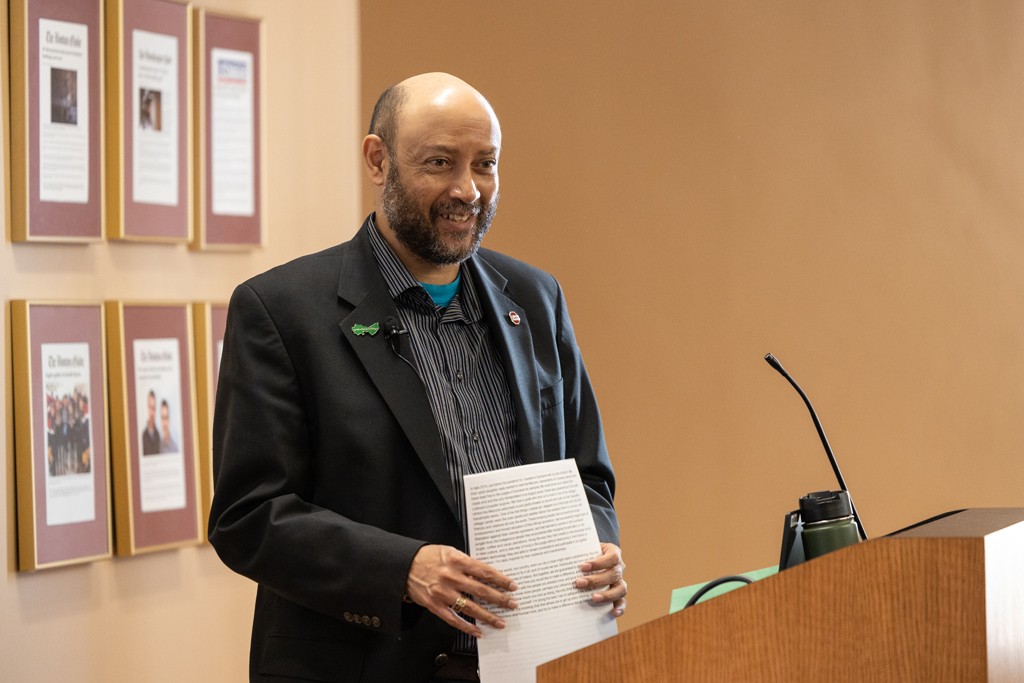Greening Communities
In April, the Winston Center and the Office of Sustainability co-hosted Quinton Zondervan, who discussed the challenges involved in climate change remediation. Zondervan is a Cambridge City Council member and passionate environmentalist who focuses largely on addressing climate change and creating more accessible avenues for sustainability.
Growing up in Suriname (South America) exposed Zondervan to systemic violence and political corruption under a military dictatorship. His upbringing also showed him the interconnectedness of the environment and human activity, as he recalled being enthralled by his natural surroundings—a thread that would continue to weave its way through his life. Zondervan explained how along his journey of moving to the U.S., eventually gaining citizenship and attending Eckerd College, he was repeatedly reawakened to the importance of climate protection. During college, he gained experience leading a grassroots recycling campaign, which he was even able to put into practice through Eckerd’s chief financial officer. When Zondervan moved to Cambridge to pursue his master’s degree at MIT, he again soon became deeply ingrained in activism and efforts to improve community sustainability, serving on the board of Green Cambridge and the Climate Action Business Association, where he co-authored the Net Zero zoning petition as part of broader Net Zero efforts.
Throughout these roles, Zondervan acknowledged the frustration that often comes with tackling such systemic issues, which he learned at a young age are not easily changed. His advice to students was to learn to be sustained by the possibility of success, rather than the guarantee or expectation of success, and to lean on those working toward the same goals. In 2017, Zondervan was elected to the Cambridge City Council on both an environmental and racial justice platform. A few years later, after the murder of George Floyd, he remarked feeling the same frustration in a system that rejects change. While working on efforts to reduce police budgets and take other reform measures, he recalled being challenged by community members who pointed out that these efforts were simply small changes to an issue that desperately needed transformational change. Zondervan responded by affirming their view that incremental changes are not satisfactory, but also acknowledging that they are sometimes necessary to get to more transformative changes.
He was reminded of this on a recent trip back to Suriname, where he visited multiple remote communities that had installed solar panels. He said he was again inspired by people’s resilience and ability to enact change. Pointing to his own beginnings of becoming an environmentalist and all of the ways it has impacted his life path, Zondervan advised students to just start from where they are and begin taking small steps toward issues that matter to them. When keeping a mindset that small steps can lead to larger successes and changes over time, and also keeping like-minded people close in this pursuit, moving toward creating a more livable and equitable future becomes much more of a possibility.
Anna Lonnquist ’23, Winston Ambassador




